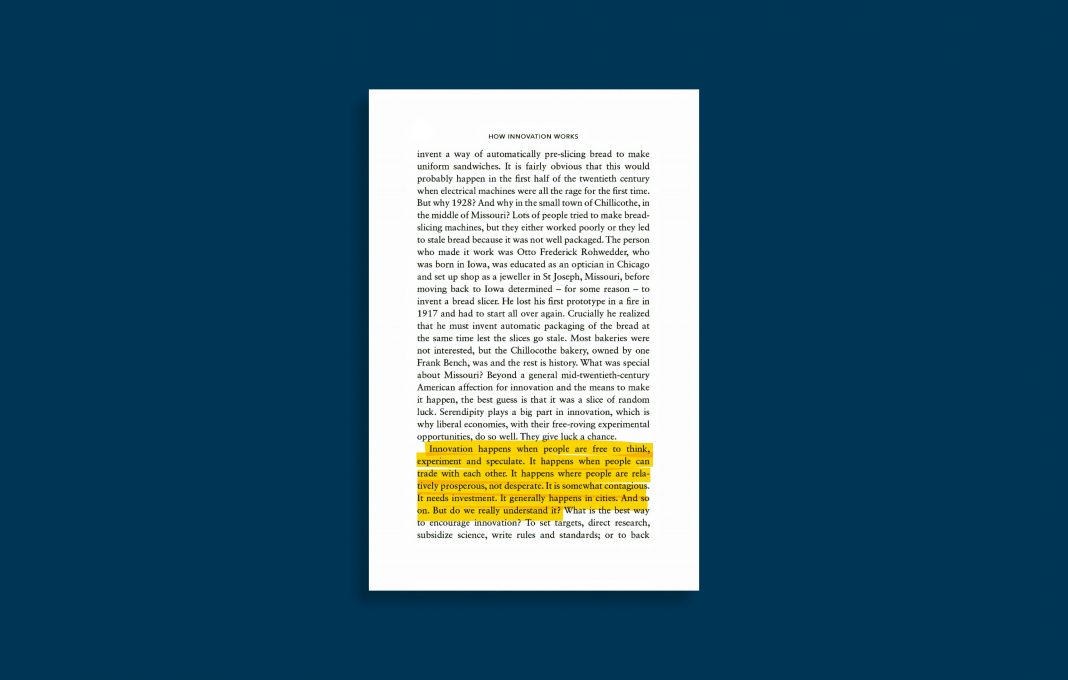Understanding Author Self-Care
Self-care is an essential aspect of an author’s well-being and productivity. It not only nurtures the author’s physical, emotional, and mental health but also plays a vital role in fostering creativity and sustaining a successful writing career.
Importance of Self-Care for Authors
Authors often immerse themselves in their work, dedicating long hours to writing, editing, and promoting their books. In this demanding process, self-care acts as a foundational pillar that supports the author’s overall health and ensures longevity in their career. By prioritizing self-care, authors can prevent burnout, reduce stress levels, and enhance their resilience in the face of challenges.
Self-care for authors extends beyond physical well-being to encompass mental and emotional health. It involves taking breaks when needed, setting boundaries to protect personal time, and engaging in activities that bring joy and relaxation. By nurturing themselves, authors can sustain their creative energy and passion for writing, leading to more inspired and impactful work.
How Self-Care Impacts Creativity
The relationship between self-care and creativity is interconnected and symbiotic. When authors prioritize their well-being through self-care practices, they create an environment that nurtures their creative process. By establishing healthy routines, incorporating movement and exercise into their day, and incorporating mindfulness and meditation techniques, authors can clear their minds, reduce distractions, and tap into their creativity more effectively.
Taking breaks and allowing time for rest is a crucial aspect of self-care that directly influences creativity. Rested minds are more receptive to new ideas, innovative storytelling techniques, and imaginative concepts. Additionally, engaging in creative play and exploration outside of writing tasks can stimulate fresh perspectives and inspire new narratives.
By understanding the importance of self-care and recognizing how it positively impacts creativity, authors can optimize their writing potential, maintain a sustainable career trajectory, and produce work that resonates deeply with their readers. It’s essential to integrate self-care practices into daily routines, find a balance that works uniquely for each author, and prioritize holistic well-being alongside creative pursuits.
Physical Self-Care Techniques
Authors often find themselves engrossed in their creative endeavors for prolonged periods, making it vital to prioritize physical self-care to maintain overall well-being and fuel creativity. Two fundamental physical self-care techniques for authors are establishing a routine and incorporating movement and exercise.
Establishing a Routine
Establishing a structured routine helps authors maintain a sense of balance and consistency in their daily lives. A well-thought-out routine can include dedicated writing sessions, meal times, breaks, and self-care activities. By setting specific times for writing, relaxation, and personal care, authors can create a healthy work-life balance that nurtures both their creativity and physical health.
A consistent routine can also aid in reducing stress and enhancing productivity by providing a sense of predictability and stability. Integrating self-care practices into your daily schedule, such as mindfulness exercises or short breaks for stretching, can contribute to overall well-being and creative inspiration.
Incorporating Movement and Exercise
Physical activity plays a crucial role in maintaining optimal health and boosting creativity. Authors can benefit from incorporating movement and exercise into their daily routines to combat the sedentary nature of writing. Regular exercise not only improves physical fitness but also enhances mental clarity and focus, which are essential for creative pursuits.
Authors can choose from a variety of physical activities based on their preferences and fitness levels, such as walking, yoga, dancing, or strength training. Engaging in physical exercise can help alleviate physical tension, stimulate the release of endorphins, and enhance overall energy levels.
To maintain consistency and track progress, authors can create a simple exercise schedule that outlines the type of activity, duration, and frequency. By committing to regular movement breaks and workouts, authors can promote physical health, reduce the risk of sedentary-related health issues, and boost their creative energy.
Incorporating physical self-care techniques like establishing a routine and integrating movement and exercise not only supports authors in maintaining their physical well-being but also cultivates a conducive environment for creativity and productivity. By prioritizing physical self-care practices, authors can sustain a healthy balance between their creative pursuits and personal health.
Emotional Self-Care Techniques
Amidst the demands of the creative process, authors often overlook the essential aspect of emotional self-care. By focusing on nurturing their emotional well-being, authors can enhance their creativity and overall mental health. Two fundamental emotional self-care techniques for authors are setting boundaries and practicing mindfulness and meditation.
Setting Boundaries
Setting boundaries is crucial for authors to maintain a healthy work-life balance and protect their emotional energy. Establishing clear boundaries involves defining limits on work hours, responding to emails, engaging with readers, and managing social media interactions. By setting boundaries, authors can prevent burnout, reduce stress, and carve out dedicated time for self-care activities.
| Boundaries | Description |
|---|---|
| Work Hours | Establish specific work hours to maintain a structured routine and avoid overworking. |
| Communication | Set limits on when and how often you engage with emails, messages, and notifications to prevent constant interruptions. |
| Social Media | Define boundaries for social media use to prevent spending excessive time online and maintain mental clarity. |
Practicing Mindfulness and Meditation
Mindfulness and meditation are powerful practices that can help authors cultivate a sense of calm, focus, and mental clarity. Mindfulness involves being fully present in the moment, acknowledging thoughts and feelings without judgment. Meditation, on the other hand, encourages deep relaxation and emotional stability by focusing on breathing and centering the mind.
Incorporating mindfulness and meditation into a daily routine can benefit authors in various ways, such as reducing stress, enhancing creativity, and improving emotional resilience. By taking time to quiet the mind and reconnect with inner peace, authors can replenish their creative wellspring and approach their writing with renewed inspiration.
| Benefits of Mindfulness and Meditation |
|---|
| Stress Reduction |
| Improved Focus |
| Enhanced Creativity |
| Emotional Resilience |
By implementing these emotional self-care techniques, authors can cultivate a positive mindset, protect their emotional well-being, and pave the way for a more sustainable and fulfilling writing journey. Remember, self-care is an essential investment in both personal wellness and creative productivity.
Mental Self-Care Techniques
Taking care of one’s mental well-being is essential for authors to maintain their creativity and productivity. This section explores two key mental self-care techniques: taking breaks and rest, and engaging in creative play.
Taking Breaks and Rest
Authors often find themselves immersed in their work for extended periods, which can lead to mental fatigue and burnout. It’s crucial to prioritize regular breaks and adequate rest to recharge the mind and prevent creative blockages. By stepping away from writing tasks and giving oneself permission to rest, authors can return to their work with a fresh perspective and renewed energy.
Implementing a structured break schedule can help authors maintain a healthy work-life balance. Setting specific intervals for breaks throughout the writing process allows for moments of relaxation and rejuvenation. Whether it’s a short walk, meditation session, or simply taking a few minutes to disconnect, these pauses can enhance mental clarity and overall well-being. Remember, self-care is not a luxury but a necessity for sustaining creativity in the long run.
Engaging in Creative Play
Creative play involves exploring artistic activities outside the realm of traditional writing, allowing authors to tap into their imagination and inner child. Engaging in activities like drawing, painting, crafting, or even playing a musical instrument can stimulate new ideas and perspectives. By embracing playfulness and spontaneity, authors can ignite their creativity and enhance their storytelling abilities.
Creative play serves as a form of mental exercise, encouraging authors to think outside the box and experiment with different mediums. This process of exploration can lead to breakthroughs in narrative development and character creation. Through creative play, authors can rediscover the joy of storytelling and reignite their passion for writing.
Incorporating these mental self-care techniques into their daily routine can help authors alleviate stress, enhance their mental well-being, and foster a conducive environment for creativity to thrive. By recognizing the importance of taking breaks, resting when needed, and engaging in creative play, authors can nurture their creative spirit and maintain a healthy mindset throughout their writing journey.
Social Self-Care Techniques
Building a strong support system is essential for authors to navigate the often solitary journey of writing and publishing. Connecting with fellow authors can provide a sense of camaraderie, encouragement, and valuable insights into the writing process. Here are some social self-care techniques that can benefit authors:
Building a Support System
Establishing a support system can include friends, family, fellow writers, or even online writing communities. These individuals can offer emotional support, constructive feedback, and a listening ear during challenging times. By surrounding oneself with a supportive network, authors can combat feelings of isolation and stay motivated throughout their writing journey.
Connecting with Fellow Authors
Engaging with fellow authors allows for the exchange of ideas, experiences, and tips on navigating the writing industry. Joining writing groups, attending writing workshops, or participating in author networking events can foster new connections and collaborations. By connecting with like-minded individuals, authors can gain fresh perspectives, inspiration, and encouragement to continue their creative pursuits.
Building and nurturing a supportive social network is a self-care practice that not only enhances the author’s well-being but also enriches their writing journey. Engaging with fellow authors can lead to meaningful relationships, professional growth, and a sense of belonging within the writing community. For authors seeking to expand their network further, exploring author networking tips can provide additional insights on building valuable connections in the writing world.
Balancing Self-Care and Creativity
As an author, maintaining a healthy balance between self-care practices and fostering creativity is essential for long-term success and well-being. Integrating self-care techniques into your writing routine can have a positive impact on your productivity and overall mental health. Finding the right approach that works best for you is key to sustaining a fulfilling and prolific writing career.
Integrating Self-Care Practices into Your Writing Routine
Incorporating self-care practices into your daily writing routine can help you recharge and stay inspired. Establishing a self-care regimen that complements your writing schedule can nurture your creativity and prevent burnout. Consider the following strategies to integrate self-care into your writing routine:
Sample Self-Care Schedule for Authors
| Time Slot | Self-Care Activity |
|---|---|
| Morning | Morning meditation or yoga |
| Writing Session | Incorporate short breaks for stretching exercises |
| Afternoon | Healthy lunch break outside |
| Evening | Wind down with a calming evening routine |
| Weekend | Engage in a hobby or leisure activity away from writing |
By strategically planning self-care activities throughout your writing schedule, you can maintain a healthy balance between creative work and personal well-being. This approach allows you to nourish your mind and body, leading to enhanced focus, creativity, and overall writing performance.
Finding What Works Best for You
Self-care is a personalized journey, and what works for one author may not necessarily work for another. It’s important to experiment with different self-care techniques and routines to discover what resonates best with your unique needs and preferences. Here are some tips to help you find the self-care practices that align with your writing process:
-
Self-Reflection: Take time to reflect on what activities bring you joy, peace, and relaxation. Consider incorporating these into your daily or weekly routine.
-
Experimentation: Try out various self-care practices, such as journaling, nature walks, or creativity exercises, to determine which ones have the most positive impact on your well-being.
-
Consistency: Establishing a consistent self-care routine can help you stay disciplined and make self-care an integral part of your writing journey.
-
Flexibility: Be open to adjusting your self-care routine as needed. Your needs and preferences may evolve over time, requiring adaptation in your self-care practices.
By prioritizing self-care and integrating it seamlessly into your writing routine, you can cultivate a more balanced and sustainable approach to creativity. Remember, self-care is not a one-size-fits-all solution, so explore and embrace the practices that support your well-being and nurture your creative spirit.





